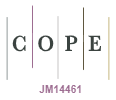Knowledge management in the current context: from the "productivism" to the training humanization
DOI:
https://doi.org/10.5585/eccos.v11i2.1518Keywords:
Humanização. Formação. Pesquisa educacionalAbstract
This paper analyzes the knowledge management, its understanding from a business perspective and its consequences. It stresses the importance of the knowledge management understanding from an educational and democratic perspective committed to human development. It stresses the importance of educational research committed to the training of human beings who are intellectually strong, emotionally adjusted, technically capable, and rich in character. This should occur either in post-graduate education strito sensu or another level of education, always committed to the scientific education of students. Capital-governed knowledge has been leading global society and humanity, splitting the world in two, polarizing them in the world of those who possess and the world of the possessed. It shows, therefore, the need for the production of an emancipatory knowledge which supports the building of a different ethics than the liberal one towards the founding of a non-discretionary, equitable and just society. In this sense and with that commitment comes the need for knowledge management which, dialectically, can manage and conceive the production of knowledge from democratic commitments that are supportive.Downloads
Download data is not yet available.
Downloads
Published
2010-02-21
How to Cite
CARAPETO FERREIRA, Naura Syria. Knowledge management in the current context: from the "productivism" to the training humanization. EccoS – Revista Científica, [S. l.], v. 11, n. 2, p. 529–548, 2010. DOI: 10.5585/eccos.v11i2.1518. Disponível em: https://periodicos.uninove.br/eccos/article/view/1518. Acesso em: 3 jun. 2025.
Issue
Section
Artigos
Views
- Abstract 280
- PDF (Português (Brasil)) 0







